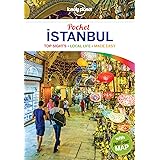by Professor Erol Göka
One of the current representatives of our standing library tradition is my brother Hazar, residing in Eskişehir. He mostly follows foreign books, magazines and newspapers, and conveys what he finds important to a circle of friends, including myself. One of the things he dislikes most is the attacks on our culture, which he believes to be the sea and the salvation of humanity, and the ignorant evaluations about it. For example, while the author of “Family, Patriarchy and Gender”, Unit 4 of Basic Concepts in Social Sciences, which is an Open Education Sociology 1st Grade 1st Term course, talks about how the names we give to girls and boys carry the expectations and values of the society, girls are emotional-passive. He talked about the examples he gave that we are raising men as warriors.
Examples given by the author, Yaprak-Yılmaz; Emotion-War; Love-Hincal; Heart-Smart; Kader-Yaman; He returned – it was Hakan. Our brother Hazar, on the other hand, objected “No” and said, “There are many names in our culture (for example, Müşfik, Halim, Hilmi, Rıfkı, Rauf, Habib, Rahman-Abdurrahman, Rahmi, Sabri, Vedat, Şefik) who call men to compassion and calmness.” Hazar was right; The author of the unit he mentioned was also unaware that in our culture, “Tomboy” and “Driver Nebahat” are not negative symbols at all.
I got a new message from my brother Hazar the other day. A friend of @azyazarozyazarr, who is notorious and has many followers on Twitter, tweeted: “Turkish Type Motivation: If this product does it, I do it too. Turkish Type Empathy: Would it be better if they did the same thing to your mother and sister? Turkish Type Sociology: What does Elalem say? Turkish Type Philosophy: Don’t think too much, you will go crazy Turkish Type Love: Either you are mine or the Turkish Type Justice of the black earth: Find it from Allah…” This tweet, which was shared widely on the internet, also found our Caspian through a friend. Since he knows my sensitivity to titles that refer to “Turkish type”, he sent me both this tweet and the reply he wrote to his friend who sent it to him. In his answer, he said: “Turkish Type Motivation: I said God, I walked or the effort is from us, tawfik is from God. Turkish Type Empathy: Measure life to life. Turkish Type Sociology: Most of the people are in loss.Turkish Type Philosophy: There is a me inside me or My faithful half is black earth. Turkish Type of Love: Come and see what love made me do or I didn’t come for the cause, my job is for love, the house of friends is hearts, I came to make hearts. Turkish Type of Justice: The finger cut by the sharia does not hurt, or the fate of the one who is abad with cruelty will be miserable…”
While reading this message, I both smiled and remembered what I wrote in my book “Psychology of Turks”: “I first noticed the views of Turks that some behaviors of Turks did not change throughout history when I was reading the works of the Turkiologist Jean-Paul Roux. Roux says that after studying Turkish history for many years, he was very surprised when he came across Turkmen living around Burdur. What surprised him was that the behavior of the Turkmen ‘as if they had just arrived yesterday in Anatolia from long ago in Central Asia’… This finding was very interesting to me. As a Yörük child who grew up in a region very close to Burdur, I witnessed the behavioral patterns that he connected with the history of Central Asia in my childhood. The memories were very fresh in my memory. My midwife (grandmother) behaved just like Roux described. The people in our village were just like that.’So all this behavior stems from our deep roots in Central Asia?’ I couldn’t help but think. Those who convinced me that there are unchanging behavior patterns throughout history are Turkicists such as Roux and Bahaeddin Ögel, Emel Esin, Abdulkadir Inan, religious historians such as Fuad Köprülü, Ahmet Yaşar Ocak, Ünver Günay, Harun Güngör, folklorists such as Pertev Naili Boratav, Özkul Çobanoğlu, Ziya Gökalp. There have been studies of sociologists such as Orhan Türkdoğan and social anthropologists such as Yaşar Kalafat. Sabri Ülgener’s studies investigating mentality patterns are also related to our field in a way. They were explaining similar findings and their theoretical reasons and scope in relation to their field.Those who convinced me that there are unchanging behavior patterns throughout history are Turkicists such as Roux and Bahaeddin Ögel, Emel Esin, Abdulkadir Inan, religious historians such as Fuad Köprülü, Ahmet Yaşar Ocak, Ünver Günay, Harun Güngör, folklorists such as Pertev Naili Boratav, Özkul Çobanoğlu, Ziya Gökalp. There have been studies of sociologists such as Orhan Türkdoğan and social anthropologists such as Yaşar Kalafat. Sabri Ülgener’s studies investigating mentality patterns are also related to our field in a way. They explained similar findings and their theoretical reasons and scope in relation to their field.Those who convinced me that there are unchanging behavior patterns throughout history are Turkicists such as Roux and Bahaeddin Ögel, Emel Esin, Abdulkadir Inan, religious historians such as Fuad Köprülü, Ahmet Yaşar Ocak, Ünver Günay, Harun Güngör, folklorists such as Pertev Naili Boratav, Özkul Çobanoğlu, Ziya Gökalp. There have been studies of sociologists such as Orhan Türkdoğan and social anthropologists such as Yaşar Kalafat. Sabri Ülgener’s studies investigating mentality patterns are also related to our field in a way. They were explaining similar findings and their theoretical reasons and scope in relation to their field.Folklorists such as Özkul Çobanoğlu, sociologists such as Ziya Gökalp and Orhan Türkdoğan, and social anthropologists such as Yaşar Kalafat have worked. Sabri Ülgener’s studies investigating mentality patterns are also related to our field in a way. They were explaining similar findings and their theoretical reasons and scope in relation to their field.Folklorists such as Özkul Çobanoğlu, sociologists such as Ziya Gökalp and Orhan Türkdoğan, and social anthropologists such as Yaşar Kalafat have worked. Sabri Ülgener’s studies investigating mentality patterns are also related to our field in a way. They explained similar findings and their theoretical reasons and scope in relation to their field.
Again, I realized that the people of my Yörük village were not just bound by the behavior patterns they brought from Central Asia; these people were also very open to change and innovations… It was necessary to think about them a lot. I tried to think for myself. I tried to describe what I saw in my writings and books…”
In short, it is true; We have behavioral patterns related to collective psychology, which we can call “Turkish type”, which exceed our individual psychology, but we should be very cautious and attentive when talking about these issues, we should know that the field we are talking about is an immense field with contributions from many branches of science. Of course, there are jokes and ironies in life, but this situation does not give us the right to rant about “Turks” as we wish… Otherwise, a Molla Kasım will come and we will be sad!…
http://www.erolgoka.net/turklerle-ilgili-konus-ama-atip-tutma/




















